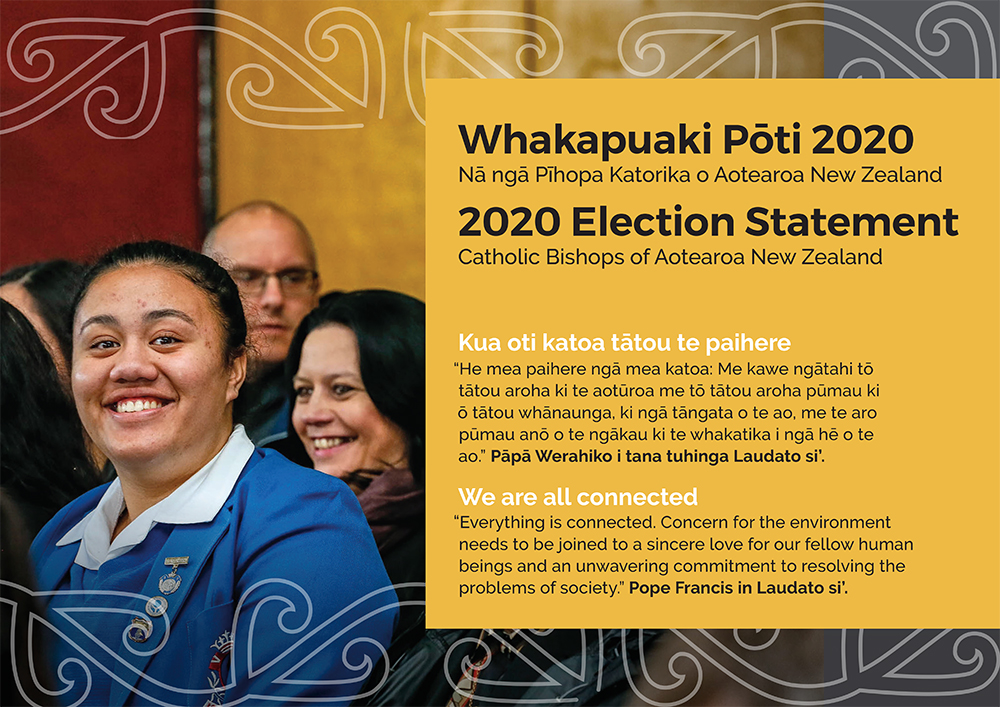The New Zealand Catholic Bishops’ 2020 general election statement encourages informed participation in this year’s general election in October.
In their statement, produced in booklet form, and being made available through parishes, the bishops say, ‘We are all connected’ and they ask ‘What kind of nation do we want?’
Their statement draws on Pope Francis’ encyclical Laudato si’: ‘Everything is connected. Concern for the environment needs to be joined to a sincere love for our fellow human beings and an unwavering commitment to resolving the problems of society.’
The bishops state, ‘In the past seven months, we have all been challenged by the global Covid-19 pandemic and its ongoing consequences for individuals, families, our country and the world. Now, as we prepare for New Zealand’s general election, we want to invite you, the voters and our politicians, to reflect beyond party policies and political personalities and consider: “What kind of a nation do we want Aotearoa New Zealand to be as we journey together?”’
The bishops seek to encourage our participation in the election process by thinking about the questions before us and for us to consider how the society we seek can be reflected in our political structures and public policies.
Voters are also being asked to respond to two referendum questions on euthanasia and making recreational cannabis legal. In reflecting on these questions, the bishops say, ‘we again need to look at the wider picture; asking how the proposed law changes will affect the vulnerable and our connectedness to one another.’
General
Published on 22nd Apr, 2024
[..]
May 2024 Funding Round | Catholic Charities Foundation
General
Published on 1st Mar, 2024
Applications for the May 2024 Catholic Charities funding round are now open [..]
Hamilton Diocese Job Vacancy
General
Published on 29th Jan, 2024
Pastoral Services Manager sought for Catholic Diocese of Hamilton [..]
Vacancies
General
Published on 25th Jan, 2024
A number of job vacancies are available across the country [..]
2024 Clergy Shifts - Diocese of Palmerston North
General
Published on 11th Dec, 2023
Bishop John would like to announce the Clergy shifts for 2024 [..]

